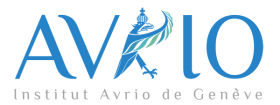The Doctor of Business Administration (DBA) in Management, Economics & Commerce is the highest level of education available to ambitious and practical professionals in the field of production, marketing, finance, transport, and many different forms of business enterprises, who seek to influence the Business and Management market from the practical aspect.
Here we provide you with an in-depth and detailed introduction to commerce, management, economics, and accounting. This DBA will be awarded to those who exhibit vast knowledge, expertise, and practical information regarding their chosen specialized field of choice. it’s a one-year of taught eLearning program that includes seminars and workshops. Additionally, you will be appointed a supervisor once you finalize your thesis project. Our professional and extremely talented faculty have been brought together to offer you the best minds with the best resources to peruse. Our program is structured to provide you with the necessary knowledge regarding applied field knowledge, economic theory, and statistical methods.
Avrio Institute, in collaboration with its partner Universities in the Americas and educational Institutions in the UK, offers a combination of coursework and a DBA dissertation that enhances the role of industry-based research that provides managers, professionals, and executives with advanced academic tools to increase the efficiency of their research skills and equip them with the tools to improve their performance in decision-making and planning.
In order for the candidate to benefit from the program as much as possible, the study program has been customized to suit your professional educational background without losing sight of what you aspire to reach. Therefore, in addition to the main regular DBA program, 18 majors are offered under the DBA program. The specialization means that you will have to study Economics & Commerce subjects, in addition to the general subjects, and that your DBA dissertation has to be in the field of Economics & Commerce. Taking into account that specialization does not mean “isolation”, but rather delving into the depth of an aspect of Economics & Commerce, and how it affects and is affected by other aspects of the Businesses.
We wish to inculcate the ability to answer empirical questions through your thesis writing project. We look forward to our selected individuals bringing up solutions to worldwide problems and issues. Our theoretical program is especially diverse and pluralist with bringing together feminist, evolutionary, mainstream, and divergent perspectives to economics and commerce. Our virtual study program is preparing you to step into academics, government, or research-related fields. Taking advantage of our Online education program provides you with the exceptional choice to juggle education and jobs from the comfort and luxury of your own home.
Studying with us offers you the opportunity to delve into interdisciplinary modes of learning, information processing, and decision making. Our distance education program certainly embellishes your CV and resume adding you to the list of candidates with exceptional training and knowledge regarding this certain field.
Through the Dual DBA qualification, candidates not only gain academic information and skills but also gain the competitive advantage by obtaining a European DBA and an American DBA makes them more in demand for work as they are more able to contribute effectively in the world of business and management.

